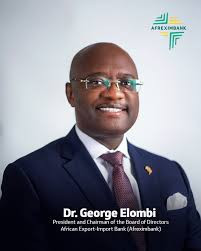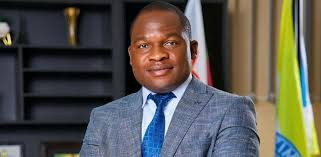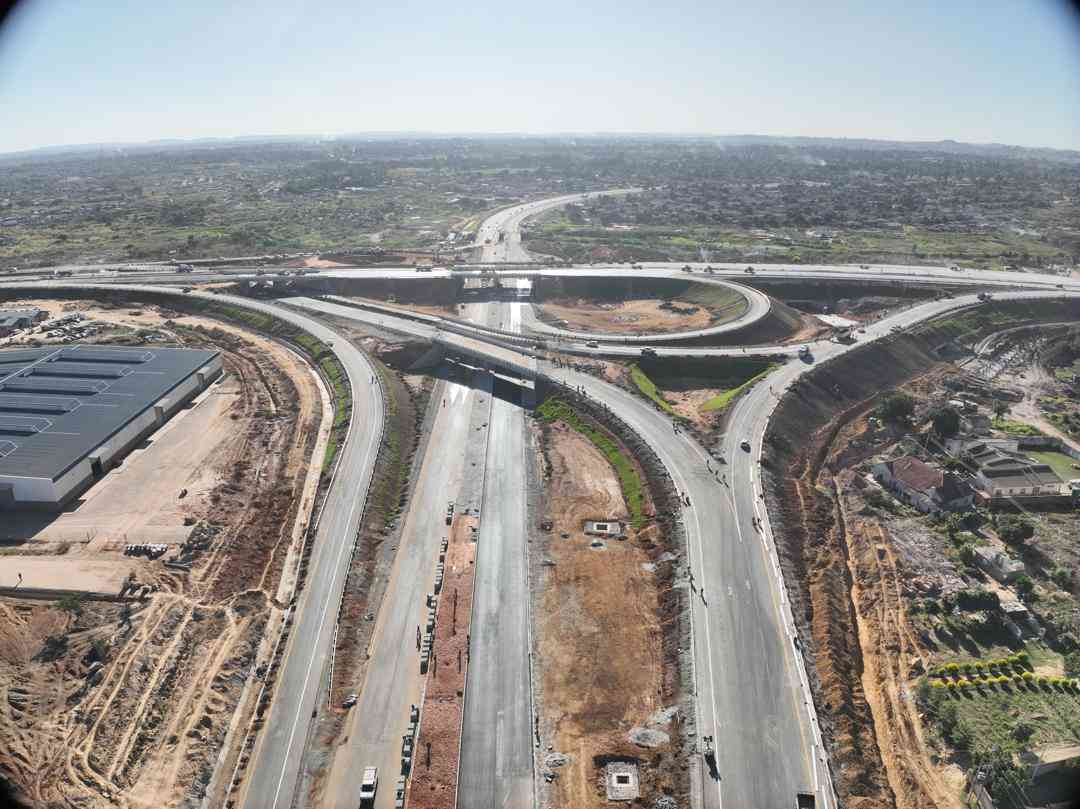
THE newly appointed president of the African Export-Import Bank (Afreximbank), George Elombi, has laid out a comprehensive five-to-ten-year strategy for the institution.
The vision prioritises a range of ambitious initiatives, from a strategic minerals development programme to the exploration of a Pan-African Digital Currency.
Elombi succeeded Benedict Oramah on Saturday, being sworn in as the bank's fourth president and chairman of its Board of Directors in Cairo, Egypt.
In his inaugural address, he affirmed his unwavering commitment to building upon the bank's legacy, pledging to deepen its impact, strengthen partnerships, and continue its core mission: to foster a self-reliant Africa that thrives through robust intra-continental trade.
Elombi highlighted the fundamental inequities in the current global trade structure, which he argued is skewed against Africa due to its over-reliance on commodity exports.
“Our mission is, therefore, to transform the structure of that trade,” he stated. “To change the structure, we must process. We must produce. Unless we produce, we cannot trade.”
To address this, the Afreximbank president announced that over the next decade, the bank will focus on sectors with the most significant potential to transform Africa’s trade and economic wellbeing.
A central pillar of this strategy is promoting value addition and the processing of strategic minerals to curb the export of raw materials.
- MIHR petitions govt on Lubimbi relocations
- ‘Timely IMF boost saved Zim’
- In Full: Twelfth post-cabinet press briefing: May 10, 2022
- Blocked funds choke NMB
Keep Reading
“Afreximbank will, therefore, create a new, high-impact financing window, specifically for projects that process raw minerals into semi-finished or finished goods,” he declared.
“We will establish a Strategic Minerals Development Programme to finance entire value chains—from extraction and refining to manufacturing finished components. This will capture far more value here at home and create high-skilled jobs for our people.”
Elombi further emphasised that the success of this value-addition agenda hinges on securing markets for the finished
goods. Consequently, Afreximbank will prioritise deepening intra-African trade and regional integration.
“We will intensify efforts to break down trade barriers, strengthen cross-border infrastructure, and foster the seamless movement of goods, services, people, and capital across our continent,” he said.
“The bank will continue to play a catalytic role in implementing the African Continental Free Trade Agreement. We will drive forward key programmes developed over the past decade and introduce new, targeted interventions where necessary to accelerate progress.”
Other key priorities outlined include catalysing the development of critical trade-enabling infrastructure, leveraging innovation and digital technology, including an exploration of a Pan-African Digital Currency to strengthen financial integration, and mobilising global African capital for continental development.
Elombi also stressed the need to fortify the bank’s own financial strength, noting that “only a strong and well-capitalised institution can make the scale of interventions required to transform Africa’s trade and development landscape.”
He added that growing strategic and innovative partnerships is essential, stating, “Africa’s progress depends not only on the strength of individual institutions, but also on the power of collaboration among them.”
Elombi also addressed what he described as an increasingly hostile narrative targeted at African multilateral institutions.
He asserted that this criticism arises not from failure, “but because we are successful.”
He clarified that unlike other multilateral bodies, Afreximbank’s preferred creditor status is not granted out of goodwill but is enshrined in the Bank’s Establishment Treaty, signed by all member states.











